An elective placement abroad is an opportunity to travel to the developing world and undertake a placement in a healthcare system completely different from the NHS. On an elective placement like this, you’ll see the challenges local staff face when their hospitals don’t have the funds they need.
You'll also get the chance to see staff shortages, a scarcity of even the most basic equipment, and practices that differ from what you’ve learned.
If you decide to do your elective abroad, you can choose from destinations in Asia and Africa. And whether you're a student or a professional, we'll create your healthcare elective placement based on your interests.
Medical Electives
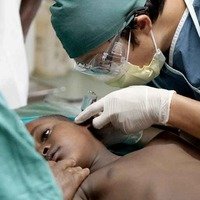 When it comes to your medical elective placement, you can choose to rotate through general medicine, surgery, A&E, ICUs, anaesthesiology, OBG, and paediatrics…
When it comes to your medical elective placement, you can choose to rotate through general medicine, surgery, A&E, ICUs, anaesthesiology, OBG, and paediatrics…
And in terms of settings, you can spend time in teaching hospitals, regional hospitals, large government hospitals, tertiary referral centres, specialist hospitals, and small rural health posts on your elective abroad.
Nursing Electives
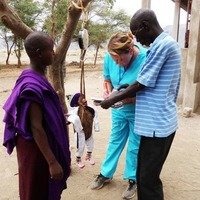 This kind of elective placement is about stepping out of your comfort zone to get new perspectives. While overseas, you’ll see different cultural attitudes affecting practice. You’ll see that being able to practise the 6Cs is a luxury of a wealthier healthcare system.
This kind of elective placement is about stepping out of your comfort zone to get new perspectives. While overseas, you’ll see different cultural attitudes affecting practice. You’ll see that being able to practise the 6Cs is a luxury of a wealthier healthcare system.
We cater to all nursing disciplines, too, so you can get specific with experience on your nursing elective placement.
Adult nursing | Child nursing | Mental health nursing | Learning disability nursing
Midwifery Elective placements
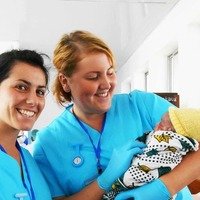 Do a midwifery elective placement abroad, and you’ll come home a changed person. You’ll be amazed at how resilient local midwives are in the face of a lack of hospital funding.
Do a midwifery elective placement abroad, and you’ll come home a changed person. You’ll be amazed at how resilient local midwives are in the face of a lack of hospital funding.
On your placement, you'll see just how limited prenatal care is, and why that results in more birthing complications than you’d see at home. A lack of funding impacts the quality of care too — many women give birth without pain-relief. You’ll even see some of the fascinating sociocultural beliefs surrounding childbirth.
Physiotherapy PLACEMENTS
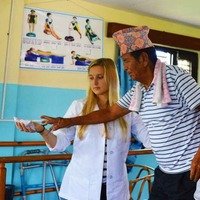 Imagine trying to deliver effective therapies with limited equipment — a daily challenge for physios in the developing world. You'll see this firsthand on your physiotherapy placement.
Imagine trying to deliver effective therapies with limited equipment — a daily challenge for physios in the developing world. You'll see this firsthand on your physiotherapy placement.
A physiotherapy elective placement will show you just how big the differences are in the basics, too. Practices like ECT and TENS are commonly used — and often a first port of call — in many of the destinations we operate in.
Paramedic Science Elective placements
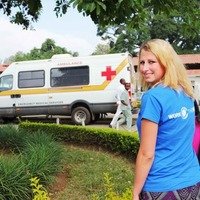 On a placement overseas you’ll see how severe resource shortages affect practices. You could even see patients undergoing procedures like manual intubation without analgesia.
On a placement overseas you’ll see how severe resource shortages affect practices. You could even see patients undergoing procedures like manual intubation without analgesia.
On your paramedic science elective abroad, you'll see that primary care doesn’t exist in many low-resource healthcare systems. That means some patients use A&E as a GP surgery, making emergency care that much harder.
Radiography Elective placements
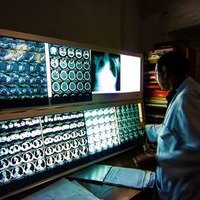 As soon as you start your radiography elective placement, you’ll see that equipment and facilities aren’t the same as they are in the UK. In some destinations X-rays are still developed on film in a darkroom.
As soon as you start your radiography elective placement, you’ll see that equipment and facilities aren’t the same as they are in the UK. In some destinations X-rays are still developed on film in a darkroom.
On your elective abroad, you'll see there's often limited privacy too, with multiple patients undergoing scans simultaneously. And in some destinations, protocols around radiation protection are far more relaxed than you’re used to at home.
Pharmacy Placements
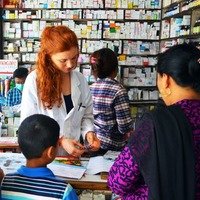 On an overseas pharmacy placement, you'll see very different drugs than those in the UK, including snake bite antivenoms. You can even travel to rural areas to see traditional herbal medicine.
On an overseas pharmacy placement, you'll see very different drugs than those in the UK, including snake bite antivenoms. You can even travel to rural areas to see traditional herbal medicine.
In your placement hospital, you’ll see massive ‘over-prescription’ of antibiotics by UK standards and different practices like breaking capsules and crushing tablets.
BIOMEDICAL SCIENCE PLACEMENTS
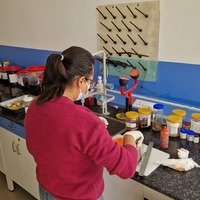 On your overseas biomedical science placement, you could get a breadth of course-relevant experience in low-resource hospital laboratory settings. You can get experience in areas including haematology, immunology, microbiology, pathology, biochemistry, pharmacology, virology, immunology...
On your overseas biomedical science placement, you could get a breadth of course-relevant experience in low-resource hospital laboratory settings. You can get experience in areas including haematology, immunology, microbiology, pathology, biochemistry, pharmacology, virology, immunology...
You could see how infectious and tropical diseases are diagnosed and treated, and gain an understanding of parasitology, all while liaising with related clinical departments to see how conditions are handled at multiple levels.
Occupational Therapy Elective Placements
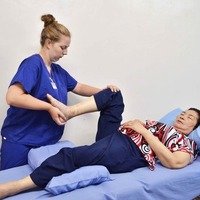 Late presentations and advanced cases are common on placements in the developing world. On an occupational therapy placement like this, you might even see conditions — like leprosy — that are rare or don’t exist in the UK.
Late presentations and advanced cases are common on placements in the developing world. On an occupational therapy placement like this, you might even see conditions — like leprosy — that are rare or don’t exist in the UK.
Don’t forget that occupational therapy is still an emerging practice in most low-resource healthcare systems. That means you’ll see unfamiliar techniques and some treatments being improvised on the spot.
Dental Electives
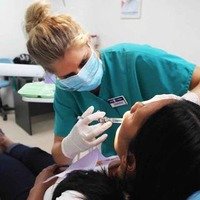 On your dental elective placement abroad, you’ll see resource shortages and outdated equipment as soon as you start. You'll also see patients with extremely advanced decay, as many can't afford treatment.
On your dental elective placement abroad, you’ll see resource shortages and outdated equipment as soon as you start. You'll also see patients with extremely advanced decay, as many can't afford treatment.
There are big differences in the basics, too. In many of our destinations, preventative dentistry is almost nonexistent. Saving teeth is a secondary concern, as procedures are simply too expensive for most patients.
What do our electives offer?
A Work the World elective gives you the chance to undertake a clinical placement in the developing world. You will spend time in a low-resource hospital and see unfamiliar practices and advanced conditions. You can even choose the departments you want to rotate through. Learn more here.
What are the benefits of a Work the World elective?
The benefits of our elective placements abroad include:
- Getting invaluable clinical experience in the field
- Making yourself more attractive to employers
- Building your personal and professional network
- Doing some proper travelling
- Sharpening your language and communication skills
- Renewing your perspective on the NHS
How long is a Work the World elective?
A clinical elective can be as long as you want it to be. Our minimum placement duration is one week, but students typically travel on their electives between 4 and 6 weeks. There is no upper limit to how long you can travel.
What is an elective placement?
In the UK, an elective is a clinical placement that medical and healthcare students undertake as part of their degree. If you want to undertake your elective placement abroad, get in touch with us today.
Why are clinical placements abroad important?
A clinical placement abroad is an opportunity to study a wide range of advanced and unfamiliar conditions. You can also gain insight into how social and cultural issues impact the provision of care, as well as travel around your chosen destination.
How do I find a clinical placement abroad?
Approaching hospitals asking for a clinical placement that meets your course requirements while being safe and enjoyable can be daunting and exhausting. Work the World’s connections with trusted hospitals in various top healthcare elective destinations make the process easy and efficient. Contact the Work the World team, and we will handle all logistics to secure your spot and tailor your chosen elective to meet your interests and requirements.
How do I choose a clinical elective at university?
You can choose between various healthcare specialties and destinations. Additionally, Work the World’s dedicated placement consultant will be in touch to talk through your clinical interests and help you decide which departments to rotate through to meet your goals. Each healthcare elective placement is tailored to help you make the most of your time abroad.
How do I prepare for placements?
Before you go on a healthcare placement abroad, you should ensure you have the necessary vaccinations, visas, and equipment. Work the World will ensure you have all the information you need to prepare appropriately for the local weather, hospital rules, and cultural expectations before departure.
How does completing a university placement abroad improve language skills?
A university placement abroad can be a fantastic chance to improve your language skills, broaden your horizons, and become more employable. You are not required to speak the local language in any of our placement destinations, but Work the World provides several resources should you wish to do so. Our MyTrip platform contains comprehensive language guides and videos, and there are twice-weekly language lessons in our Work the World houses. Designed with your clinical placement in mind, these language lessons are a bonus to help you get to grips with clinical words and phrases.





